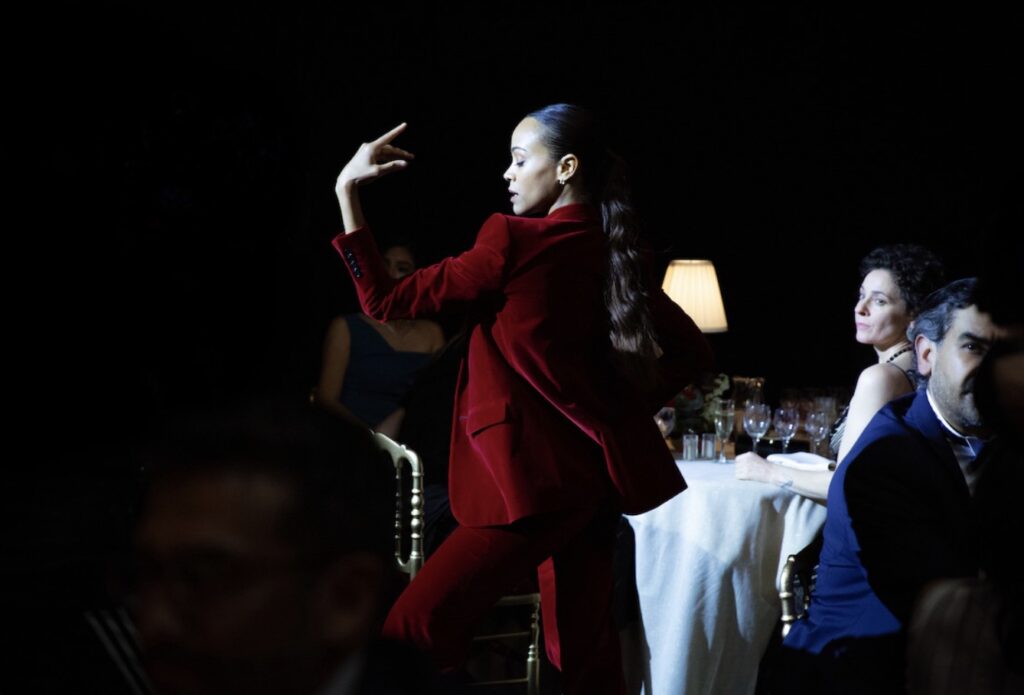How Two Controversial Films Redefined Creativity—and Why the Industry Is Divided
- AI Takes Center Stage: The Brutalist and Emilia Pérez earned Oscar nominations for acting and technical categories, despite backlash over their use of AI for voice cloning and visual design.
- Ethics vs. Innovation: Directors defend AI as a tool for authenticity and efficiency, while critics decry its threat to artistic integrity and labor rights.
- A Precedent in the Making: These films join a growing list of AI-augmented Oscar contenders, forcing Hollywood to confront the future of creativity in the age of algorithms.
The 2024 Academy Awards nominations have thrust artificial intelligence into the spotlight, with The Brutalist and Emilia Pérez leading the pack. The former, a haunting Holocaust survival drama, scored 10 nods, including Best Actor for Adrien Brody and Best Supporting Actress for Felicity Jones. The latter, a bold musical about a transgender cartel leader, dominated with 13 nominations, including Best Actress for Karla Sofía Gascón. Both films, however, are embroiled in controversy not for their storytelling, but for their reliance on AI. The Brutalist used Respeecher to refine Hungarian dialogue and generative AI for its climactic architectural visuals, while Emilia Pérez employed the same tool to blend Gascón’s vocals with a French singer’s voice. The backlash was swift, with purists arguing that AI undermines human artistry—but the films’ creators insist it elevates it.

The Tools Behind the Controversy
For The Brutalist, director Brady Corbet and editor David Jancso turned to AI out of necessity. Jancso emphasized that Respeecher was used sparingly to perfect Hungarian pronunciation, not to replace Brody and Jones’ months of dialect training. Meanwhile, generative AI helped craft intricate architectural designs for the film’s finale, a task deemed too costly for traditional methods. Similarly, Emilia Pérez faced scrutiny when re-recording mixer Cyril Holtz revealed AI was used to address Gascón’s vocal limitations during her transition. “It was about honoring her performance, not erasing it,” Holtz argued. Yet critics on social media labeled the films “soulless,” accusing studios of prioritizing cost-cutting over craft.
Hollywood’s AI Dilemma: Creativity or Exploitation?
The debate echoes tensions that fueled the 2023 strikes, where writers and actors fought for protections against AI replacing jobs. While recent union agreements mandate compensation for AI use, gaps remain—like whether studios can train AI on existing content without consent. Peter Csathy, media analyst at Creative Media, warns that generative AI’s reliance on copyrighted material poses legal risks. “The Oscars must balance celebrating art with protecting creators,” he told CNBC. Yet defenders point to precedents: Bohemian Rhapsody blended Rami Malek’s voice with a professional singer’s, while The Irishman used AI to de-age its stars. Both were Oscar darlings, proving audiences often embrace tech when it’s invisible.
The Defense: AI as a Collaborative Force
Corbet remains unapologetic. “AI didn’t alter performances—it enhanced authenticity,” he told Variety, stressing that Respeecher merely polished vowels in post-production. For Emilia Pérez, director Jacques Audiard framed AI as a bridge between Gascón’s raw talent and the story’s demands. Even Netflix’s Maria, another nominee, used Respeecher to clone opera legend Maria Callas’ voice for Angelina Jolie’s portrayal. These filmmakers argue AI is no different than CGI or sound mixing—a tool to realize visions otherwise constrained by budget or biology. “The goal isn’t to replace artists,” Jancso said, “but to empower them.”
The Oscars’ Role in a New Creative Era
As the Academy stays silent on the controversy, the nominations signal a tacit acceptance of AI’s role in modern filmmaking. Yet the outcry reflects deeper anxieties: Will AI democratize creativity or dilute it? Can algorithms coexist with human genius? For now, The Brutalist and Emilia Pérez stand as test cases. Their Oscar success—or failure—could shape whether AI becomes a footnote in film history or the foundation of its future. As Csathy notes, “This isn’t just about awards. It’s about who gets to tell stories, and how.”
The 2024 Oscars may be remembered not just for its winners, but for forcing Hollywood to answer a existential question: In the quest for innovation, where do we draw the line between tool and trespass?
